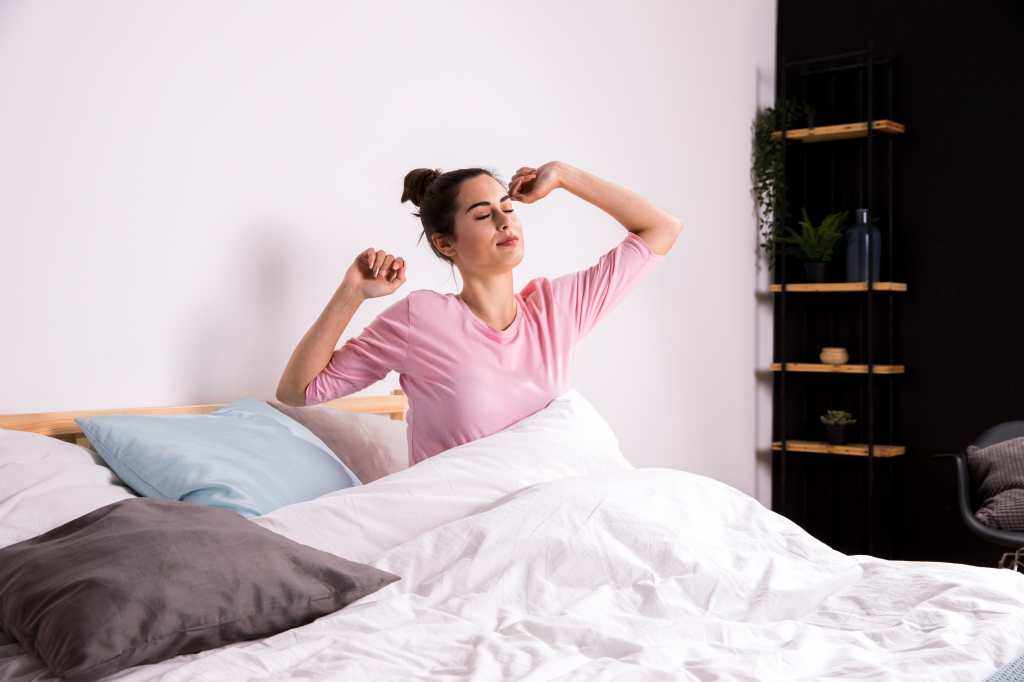When experiencing insomnia, we want to know how to fall asleep fast and avoid this problem. Therefore, there are techniques that can be useful for this purpose.
Is it three in the morning and you still can’t fall asleep? You’d probably like to know how to fall asleep quickly to avoid discomfort during the day.
There are techniques proposed by doctors, psychologists, and professionals from different specialties that can help us sleep better.
However, if this is a recurring situation that affects your quality of life, you should consult a sleep disorder specialist for a diagnosis, or your family doctor to rule out any underlying health problems.
Why can’t we fall asleep quickly?
According to psychologist Fredy Ortiz, from the League of Mental Hygiene, there are various psychological factors or factors related to our routine that could alter sleep and he indicates that these are some of the most common:
- Living in a hectic way: We operate in a context with demanding occupations, which could prevent us from falling asleep since we think about what we need to solve in the future instead of relaxing.
- Everyday distractions: Social media is considered to be one of the most common distractions of our time. Overuse of these can lead to sleep disorders.
- Emotional causes: Stress, anxiety, and depression can trigger sleep problems, so it is important to see a mental health professional to treat these problems at their root.
How to fall asleep quickly at night?
Ortiz mentions that it is necessary to take care of our physical health and our personal organization. In this regard, the professional mentions that people who exercise sleep better, as well as those who organize their academic and work activities better, highlighting the importance of planning.
In addition, the psychologist emphasizes that it is vital to manage our worries in a better way, avoiding as much as possible solving problems during the night or thinking about them before sleeping. To do this, there are some strategies that you can implement. According to information from the Medline Plus and BBC portals, these are some of them:
1. Bathe with warm water before going to sleep
This is one of the most common recommendations for falling asleep quickly since water at this temperature helps the body relax.
According to BBC, this is because the blood vessels dilate and this pushes more blood to the surface of the skin, causing the core temperature to decrease and this acts as a signal to sleep. Recent studies claim that those who do this practice fall asleep 36 percent faster.

2. Conscious breathing
This is one of the widely used techniques for falling asleep. According to experts, practicing conscious breathing helps us produce melatonin naturally.
Melatonin is the hormone responsible for regulating good sleep, as well as other functions in the human body: “It is like a biological brain clock (…). This helps us sleep since that is when we release the most of this hormone,” says Daniela Ortiz, a psychologist.
As for conscious breathing, we share a video that can be useful to learn and master the four-step breathing technique. We advise you to repeat the exercise as many times as necessary.
3. Abdominal breathing
A technique quite similar to the previous one is abdominal breathing. According to the Medline Plus portal, these are the steps to put it into practice:
- Place your hand on your belly.
- Inhale, letting the movement push your hand outward as your belly rises.
- The chest should remain still.
- Hold your breath and count to five. Release the air for five seconds and repeat the process.
- In addition to this exercise, experts also suggest counting backward from the number 300, by threes.

Other general recommendations for sleeping better
- Read before bed.
- Avoid exposure to electronic screens before going to sleep (phones, TV screens, etc.).
- Listen to relaxing music or audiobooks.
- Do not consume tobacco, caffeine, alcohol, or any other substance that alters your sleep pattern.
- Eat light dinners, avoiding heavy meals.
- Exercise in the morning or afternoon.
- Reduce nap times to sleep better at night.
- If lack of sleep frequently affects your daily activities or you have other physical symptoms, see your doctor as soon as possible.




















+ There are no comments
Add yours